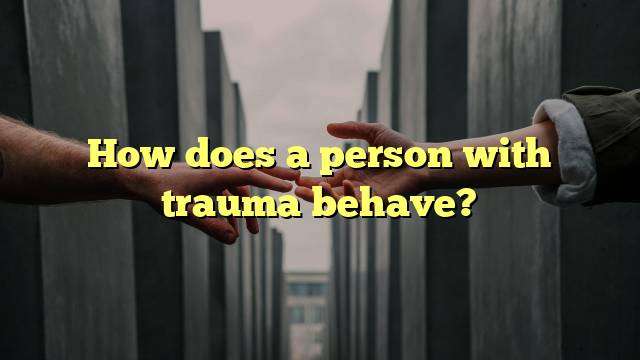How Does Trauma Affect a Person?
Trauma is an experience that can cause severe psychological distress and can have long-lasting effects on the individual who experiences it. It can affect people in a variety of ways and can cause physical, psychological, and emotional harm. While the individual effects of trauma will vary depending on the person and the type of trauma experienced, there are some common responses that many people have when faced with traumatic events.
Initial Reactions to Trauma
When faced with a traumatic event, people may experience a wide range of initial reactions. These reactions can include exhaustion, confusion, sadness, anxiety, agitation, numbness, dissociation, confusion, physical arousal, and blunted affect. These reactions are normal and are socially acceptable, psychologically effective, and self-limited.
Long-Term Effects of Trauma
Though initial reactions to trauma may be normal and self-limiting, the long-term effects of trauma can be more serious and can vary from person to person. Some of the most common long-term effects of trauma include:
- Depression – Trauma can lead to feelings of depression, which can manifest as a low mood, lack of interest in activities, and feelings of hopelessness.
- Anxiety – Trauma can cause anxiety, which can manifest as fear, restlessness, difficulty concentrating, and a feeling of being on edge.
- Post-traumatic Stress Disorder (PTSD) – PTSD is a mental health disorder that can occur after a person experiences a traumatic event. It can cause the person to relive the traumatic event through flashbacks or nightmares, have intense emotional and physical reactions to triggers, and have difficulty functioning in everyday life.
- Substance Abuse – Trauma can lead to substance abuse as a means of self-medicating or numbing the pain of the traumatic event.
- Difficulty with Relationships – Trauma can lead to difficulty with relationships, as the person may struggle to trust and connect with others after the traumatic event.
Coping Strategies for Trauma
Though the effects of trauma can be long-lasting, there are ways to help cope with and manage the trauma. Some of the most common coping strategies include:
- Seeking Professional Help – Seeking professional help from a therapist can be beneficial for managing the symptoms of trauma. Therapy can help the individual learn new coping strategies, process their emotions, and gain a better understanding of their experience.
- Talking to Trusted Friends and Family – Talking to trusted friends and family can be a helpful way to process emotions and get support. It can be beneficial to talk to someone who has had a similar experience, as they can provide empathy and understanding.
- Building Healthy Coping Skills – Building healthy coping skills such as mindfulness, exercise, and creative outlets can be beneficial for managing the symptoms of trauma. These activities can help the individual to be more present in the moment and to focus on something other than the trauma.
- Practicing Self-Care – Practicing self-care can be beneficial for managing the symptoms of trauma. This can include activities such as getting enough rest, eating healthy, and engaging in enjoyable activities.
Trauma is an experience that can have long-lasting effects on the individual who experiences it. It is important to be aware of the initial reactions to trauma, the long-term effects of trauma, and the coping strategies that can be used to help manage the symptoms of trauma. With the right support and treatment, individuals can learn to manage the effects of trauma and lead healthy, fulfilling lives.



